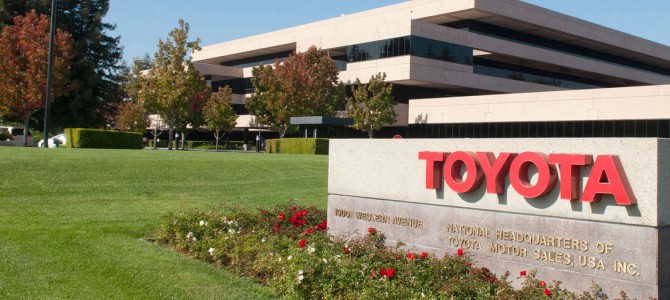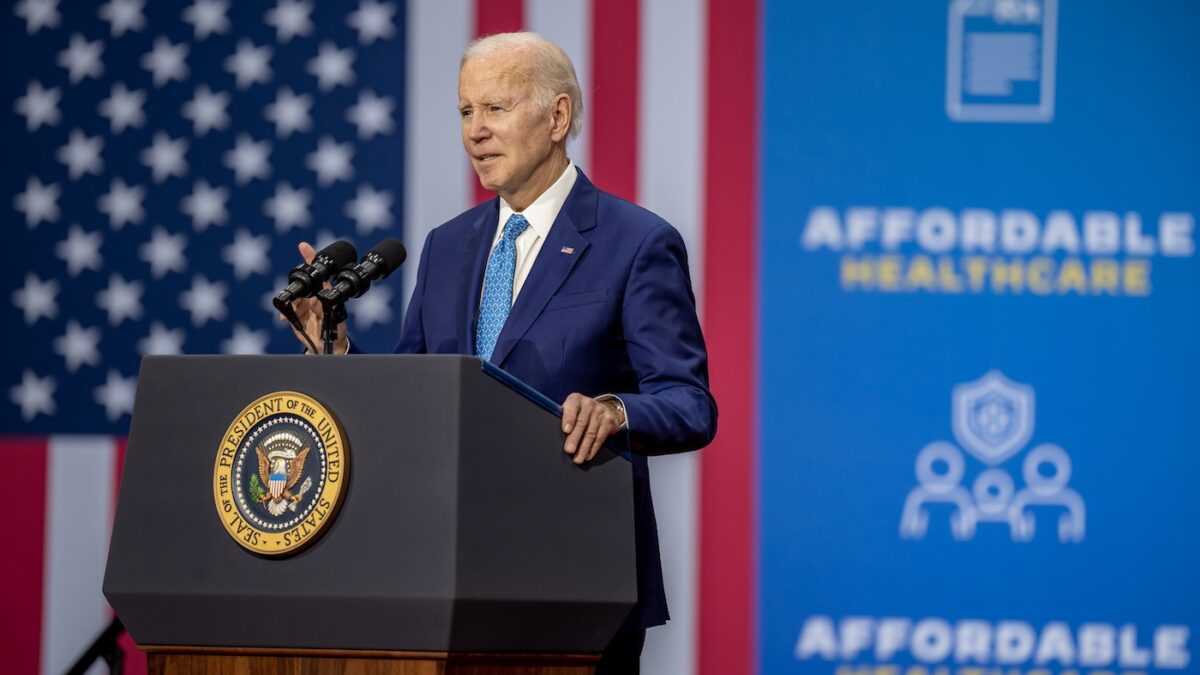
An announcement over the weekend was that longtime corporate resident Toyota Corporation would be moving from its Southern California home to establish new headquarters in Texas. This is a jarring move, only partly due to the significance of the company. The other factors behind this decision are not comfortably discussed by California politicians, given they consider themselves to be among the vanguard of proper political thinking for the rest of the country. The problem that is becoming harder to conceal is the economic reality inside the borders.
California is a state with a well-earned reputation of leftist politics. Whether it is bowing to environmental extremism, coddling collegiate activism, unleashing socialist idealism, or simply incubating liberal ideology, the state is often one to lead the charge is experimental statism. If there is a way or manner which the government can enact a social cause California is sure to give it a run.
Beyond common nanny-state policies everything from showing favoritism to illegal aliens, to granting the homeless more rights than home owners, and mandating energy policies that would make your average commune in violation has been tried. The recent controversy over the sexism of McDonalds Happy Meal toys was a non-starter in San Francisco; that city made the toys illegal a few years back. But while these social experiments may be quaint for some they are largely oppressive for just as many, and particularly suffocating for many businesses. Taxes, mandates, and other regulatory controls are squeezing businesses, and many are electing to seek fertile ground elsewhere.
Many tech companies are managing to thrive in this environment, due in part to being founded on these same principals. More likely these are helped by healthy revenues allowing them to afford the restrictive economic playing field. Longtime operators are not so agreeable. Toyota has been a fixture in Torrance, CA since the mid-1950s. The decision comes rather abruptly, so much so that Mayor Frank Scotto said he had no warning of the decision to leave.
The Flight Of The Unwelcome
Toyota’s move to Texas follows another major corporate departure this year, as Occidental Petroleum announced in February it would be relocating to Houston, and this Cali-to-Lone-Star shift is not an outlier; it is becoming an exodus. Also moving to Houston was Calpine Corp. from San Jose in 2009, preceded by Fluor Corp. which jumped from Orange County to Dallas in 2006. In fact Toyota becomes the third major auto company to leave the Golden State in recent years. Nissan Motors evacuated to Tennessee in 2006, and Honda is in the process of moving executives to Columbus Ohio.
A certain level of denial is taking place within California in regards to the fact that from a business perspective the state is suffering. Many political responses toss out non-revelatory statistics; California has the highest GDP of any State, or the taxes are only as high as the citizens would approve, for instance.
That GDP figure has as much to do with serving size than any economic vitality. The state boasts seven of the top-50 cities – four of those in the top twelve. A more revealing statistic would be the amount of businesses lost. Businessweek last summer noted a 5.2% loss of business statewide. While more deflection was offered (the bad economy leading to business closings rather than migration) Florida, second-ranked for number of businesses and a state with notable economic challenges, saw an increase in companies within the same period.
The denials do little to hide the fact that the state government has been doing little to aid its dismal economy; in fact, the opposite holds true. Governor Jerry Brown spent the his energies during this business attrition pushing his Prop-30 tax initiative, raising the tax rates on the wealthy in his state as well as a retroactive tax on entrepreneurs. At a time when his state’s companies are flagging he goes after them with policies that stifle growth and scares away investment.
This very atmosphere, which inspires companies to look for better business opportunities, is not denied by all. Torrance Mayor Scotto was upfront about the reality he was facing. “We don’t have the tools we need to keep major corporations here,” he said in what was either a rare bit of candor or, possibly, the sound of defeat. “A company can easily see where it would benefit by relocating someplace else.”
From Obama Backers To Conservative Lobbyists
If there is one component that could be singled out as being emblematic of California’s harsh economic environment it would be the entertainment industry. Over the span of a generation that sector has watched as jobs, studios, and productions steadily eroded, moving to more revenue-friendly locations and taking with them a significant amount of capital and tax revenues.
This began decades ago when Canada undertook an aggressive effort to court movie and television productions. This involved tax breaks and agreements with labor unions to fabricate conditions the studios could not refuse. So much film and TV work now takes place in Canada that an immense entertainment infrastructure has been built in that country. It has become such a success that Canada’s efforts became the model other states have used to entice the entertainment industry; not only to use them as a filming location but to establish a growing, jobs-creating industry.
Going back only a handful of years the state of Louisiana was seeing only a few million dollars of revenue provided by scattershot film shoots. Following an intense period of luring Hollywood with tax incentives and favorable business conditions that state’s entertainment sector has swelled to a booming industry with a growing base of companies generating revenue into the hundreds of millions of dollars. In a slightly different fashion Georgia has also looked to build itself into an entertainment option.
Beginning with a growing animation industry as a base it too began attracting movies and television productions. The Walking Dead, the most popular dramatic cable program, is a Georgia-set production. Last year the state landed a coup the likes of which Hollywood specifically, and California in general, would salivate to possess. Pinewood Studios is a revered production facility in England that has been the filming home of many popular epic motion pictures, from the James Bond franchise to the Harry Potter franchise. Pinewood announced it would be expanding to the U.S., but not in Studio Land, California. Its new sprawling soundstage facility is located just south of Atlanta, where the new Marvel super hero film Ant-Man has begun filming.
California meanwhile is reeling. Groups have been formed by studios, guilds, and other labor groups in order to lobby the state for competitive and favorable tax conditions. The requests for lower taxes in order to spur business growth and job creation sounds like it could have been lifted from a Reagan policy paper. Harvey Weinstein, a campaign bundler for President Obama, has pleaded with the Los Angeles Film Czar to go to Governor Brown for more industry-targeted economic support. This is a direct call for corporate welfare that the Weinstein-Obama camps love to deride – at least verbally.
The severity of the job losses and production flight by Hollywood is not dramatic hyperbole. Instead of looking at numbers and statistics, the best illustration of California’s loss of entertainment work can be found in two blockbuster films coming to theaters. Next week brings Godzilla to theaters, with a bulk of that story set in the San Francisco area. Later in the year we will see San Andreas, an action epic starring Dwayne The Rock Johnson. These films sport immense budgets and large production staffs. Both are staged significantly in California.
And both were filmed elsewhere. The entirety of filming for these titles in California involved nothing more than exterior establishing shots. This amounted, for each title, to less than one week’s worth of work.
When it comes to sympathy for liberal policy you would be hard pressed to find an industry more aligned than the Hollywood industrial complex. But when the money managers from that sector are voting with their wallets to go elsewhere, while compelling Jerry Brown to grant them corporate favorability in the name of trickle-down economics, you might think the governor would begin to listen.
So far he has not. Meanwhile more corporations like Toyota will continue loading up for a one-way road trip out of town.









